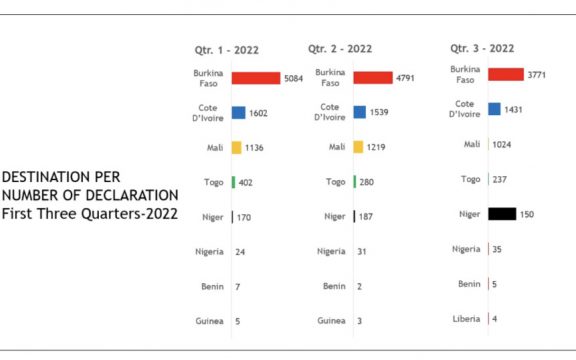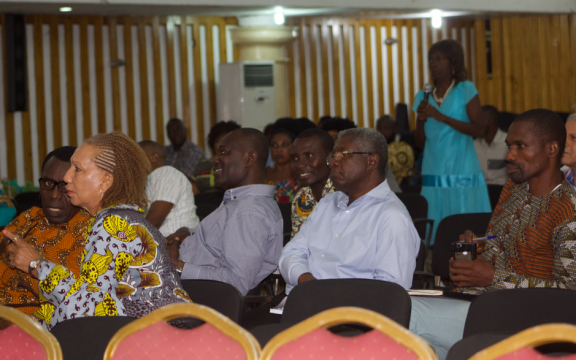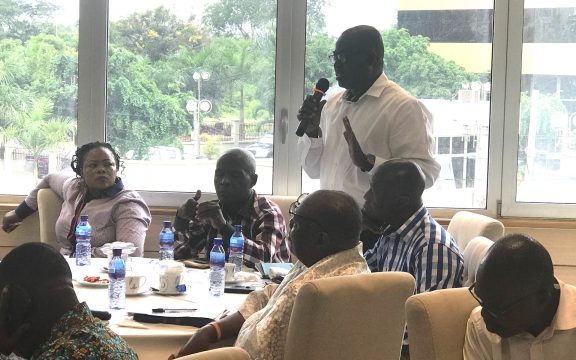A mass ban on import of new but substandard and used appliances has come into force in Ghana to reduce energy consumption and harm to the environment. It came after the Energy Commission (EC) secured fresh overarching powers to effectively deal with the influx of electrical and electronic waste into the Ghanaian market. Consequently, the EC has now been equipped with 19 additional regulations on the import of electrical appliances and renewable energy products in order to prevent the country from becoming a desirable destination for both new but substandard and used appliances.
The affected appliances include washing machines, industrial fans, rice cookers, computers, set-top boxes, ventilating fans, microwave ovens, storage water heaters, public lighting, and television sets. The rest are electric motors, electric kettles, air conditioners, distribution transformers, comfort fans, solar panels, improved biomass cookstoves, renewable energy batteries and inverters.

It also secured an amendment to the existing three (3) Energy Efficiency Regulations on refrigerators, air-conditioners and incandescent filament lamps. In all the EC has been clothed with 22 regulations to check the Electronic Waste (E-Waste).
Transitional period
The Regulations which came into force in November 2022 offered a one-year transitional period for the market to adjust. The transitional period is expected to be used to create the needed awareness on the Regulations.
In the wisdom of Parliament, actors and dealers in the business would use the transitional period to prepare themselves for the full implementation of the Laws to begin. The period was also offered to protect the source of livelihood of people in the Electrical Appliances and the Renewable Energy products markets.
Adoption of a New Minimum Energy Performance Standard (MEPS)
The Assistant Manager of Energy Efficiency Regulation at the EC, Hubert Nsoh Zan, said that the Regulations have adopted a new Minimum Energy Performance Standard (MEPS), an international tool used to determine the standard of an electronic appliance.
He said that, with these regulations, importers are required to ensure that their imports meet the new MEPS otherwise their goods would not be approved to enter the country, whether they are brand new or used appliances.
Mr. Zan also said that the EC had noticed that there were often a lot of complaints about fire outbreaks caused by electrical and electronic appliances that are substandard and / or used. “The only way to resolve the situation is to design a benchmark for the products and so you can actually have a brand-new alliance that does not meet the MEPS. The idea is also that a used appliance would definitely not meet MEPS when set as a barrier. This is because there is no way an old version of a product will meet that standard because its efficiency has been lost,” he added.
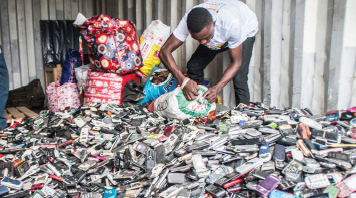
Being Scientific
The EC must now operate by the MEPS which are globally accepted to regulate the market and protect consumers in order not to be scientific. The EC, therefore, worked closely with the Ghana Standards Authority (GSA) to adopt the MEPS for all the appliances under the scope of the 22 Regulations.
As part of the requirements, importers that deal in any of the affected appliances must furnish the EC with a Performance Test Report from a third party or an independent accredited laboratory before they would be allowed to import. These requirements have been included in the new Regulations because most of the importers do not have the technical know-how to determine the standard of an appliance.
The EC will now play the role of a referee to protect the importer from the manufacturer or any source of an appliance, to ensure that whatever appliance is imported into the country meets the standard.
Should an importer refuse to seek approval from the EC before importing an appliance, the law now provides the EC powers to protect the consumer.
Registry
As part of the new Regulations, importers must register each model being shipped into the country with the EC. A registry of all importers and their products have already been created to hold them responsible for the performance of appliances they bring into the country. Thus, should there be a fire outbreak caused by a particular appliance, the EC would be able to trace which brand and importer is responsible and that would make it easy for a market recall of the defective appliance.
Market Surveillance
The new Regulations have also clothed the EC with more legal powers to undertake periodic market surveillance to ensure that appliances meet the MEPS requirement. This has been done because the old Energy Efficiency Regulations were not punitive enough and for that reason the EC could effectively not regulate the three (3) appliances comprising refrigerators, air-conditioners, and incandescent filament lamps it superintended.
With the old Regulations, once an importer was able to smuggle the appliance into the market, nothing could be done, but the new laws make provision for enforcement by the Law Enforcement Agencies which include the EC, Ghana Standards Authority, the Customs Division of the Ghana Revenue Authority (Customs) and the Ghana Police Service (GPS).
Conclusion
The measures brought into force by the new Regulations are part of interventions to prevent the country from becoming an environmental dumping site for used electrical and electronic waste from Europe. With the advent of the Regulations, stakeholders must work together to block the influx of electronic waste from other jurisdictions into the Ghanaian market. Doing so would help to save the economy avoidable cost by reducing the demand for electricity with its attendant cost for additional generation capacity.
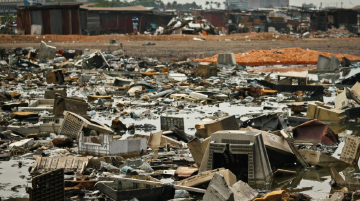 The new Regulations will also protect the environment and safeguard the health of citizens from air pollution caused by increased power generation; and consumers from purchasing inefficient appliances and paying unnecessarily high electricity bills to use them.
The new Regulations will also protect the environment and safeguard the health of citizens from air pollution caused by increased power generation; and consumers from purchasing inefficient appliances and paying unnecessarily high electricity bills to use them.
By: Maclean Kwofi




